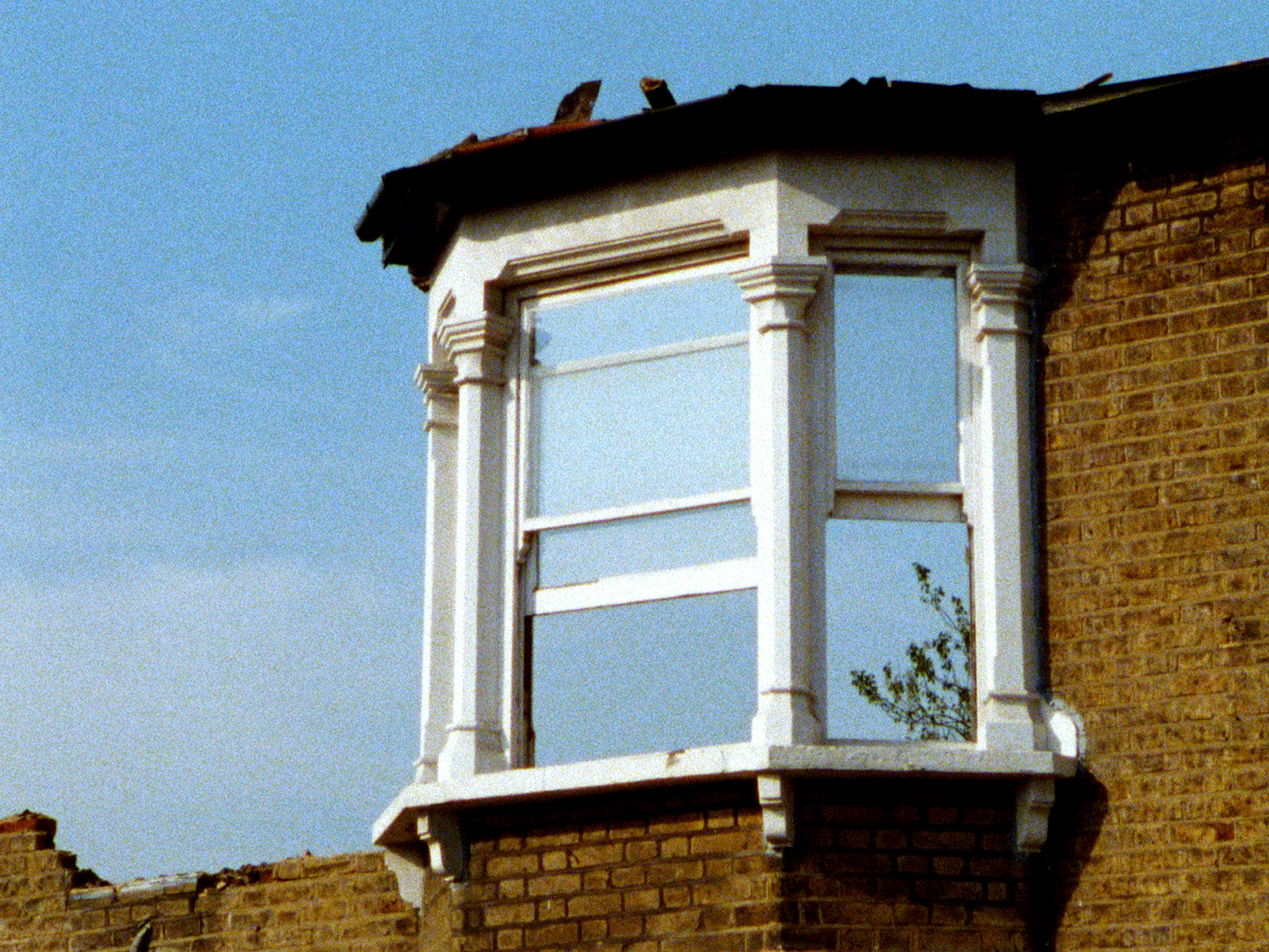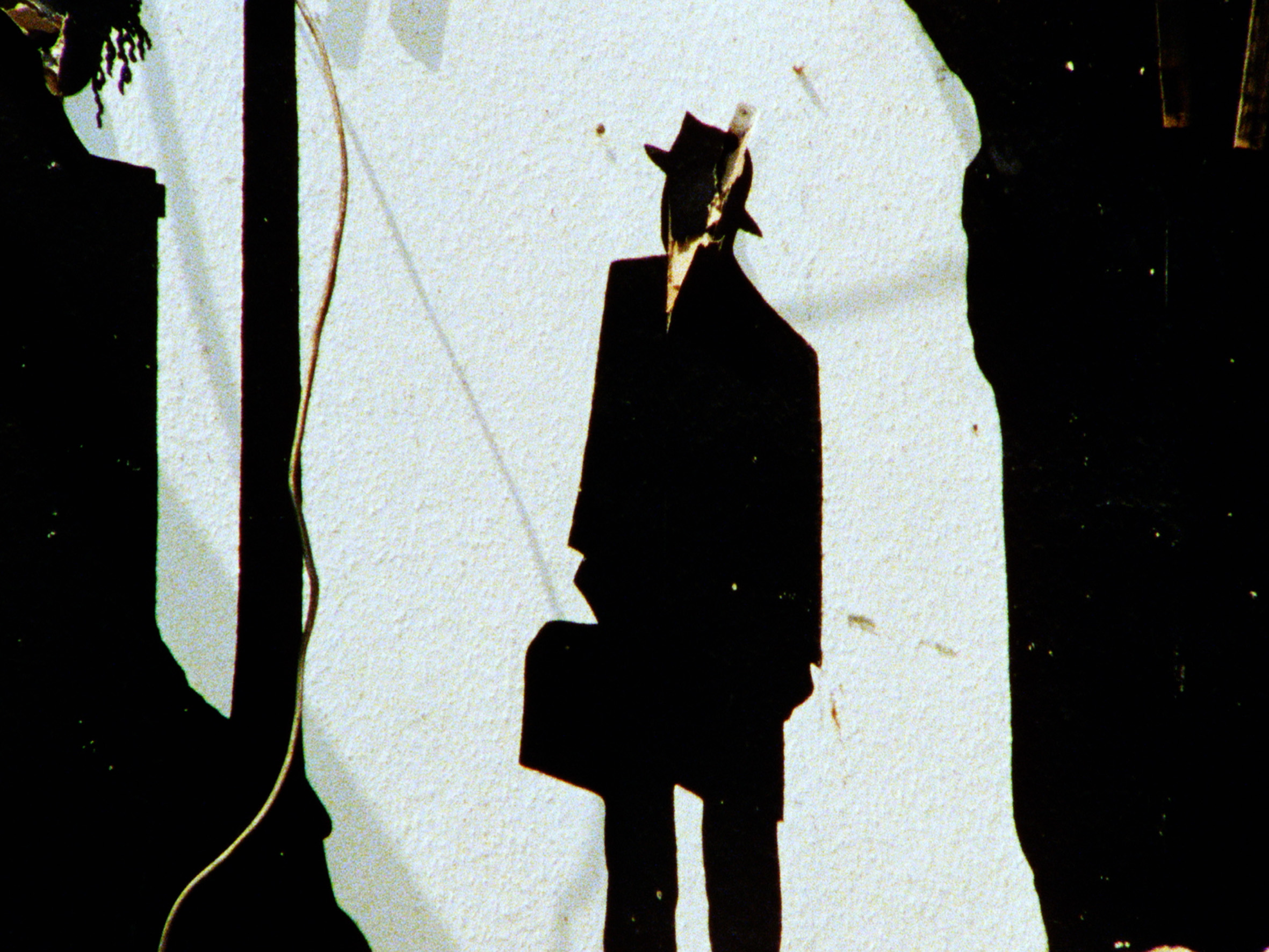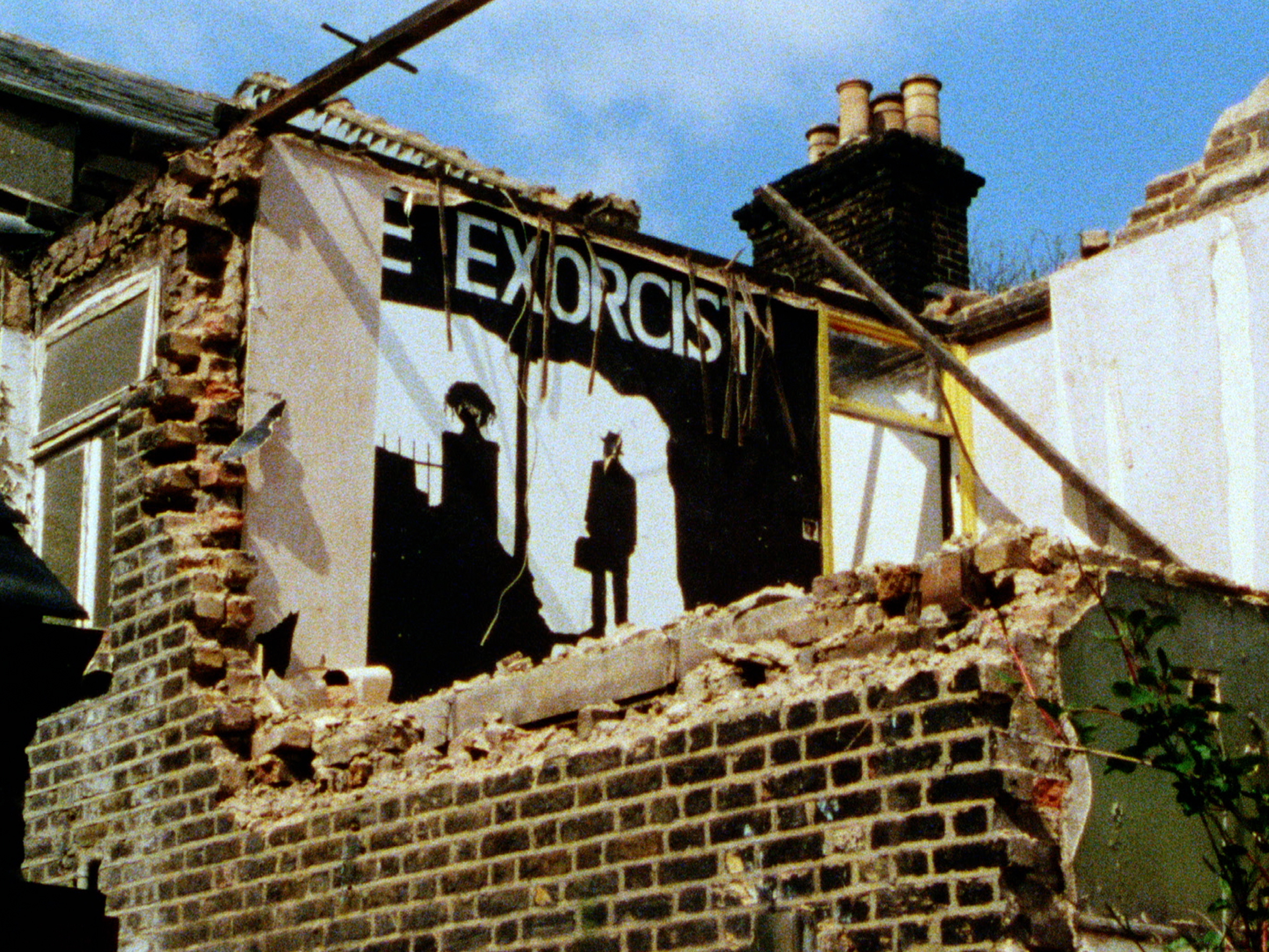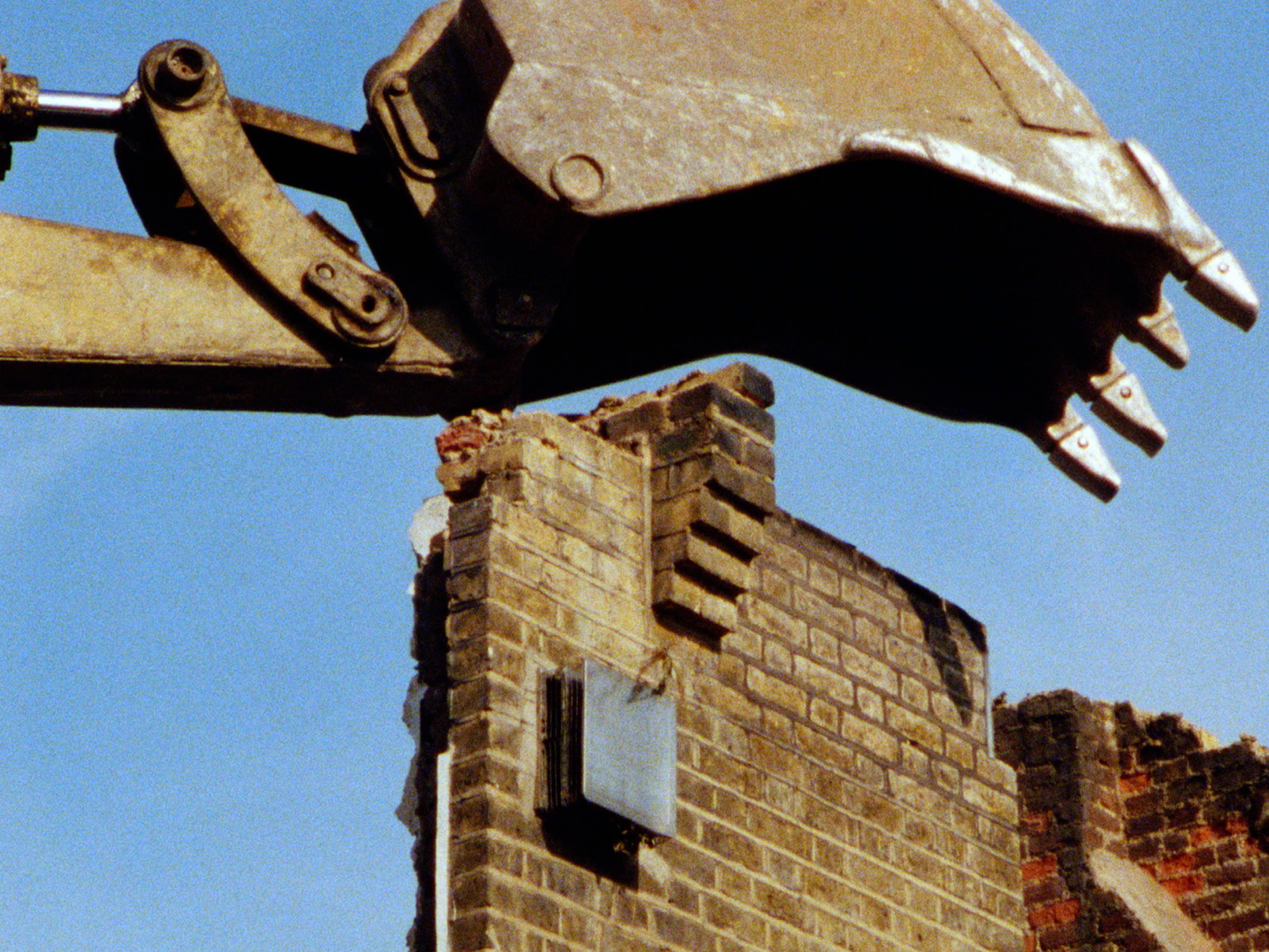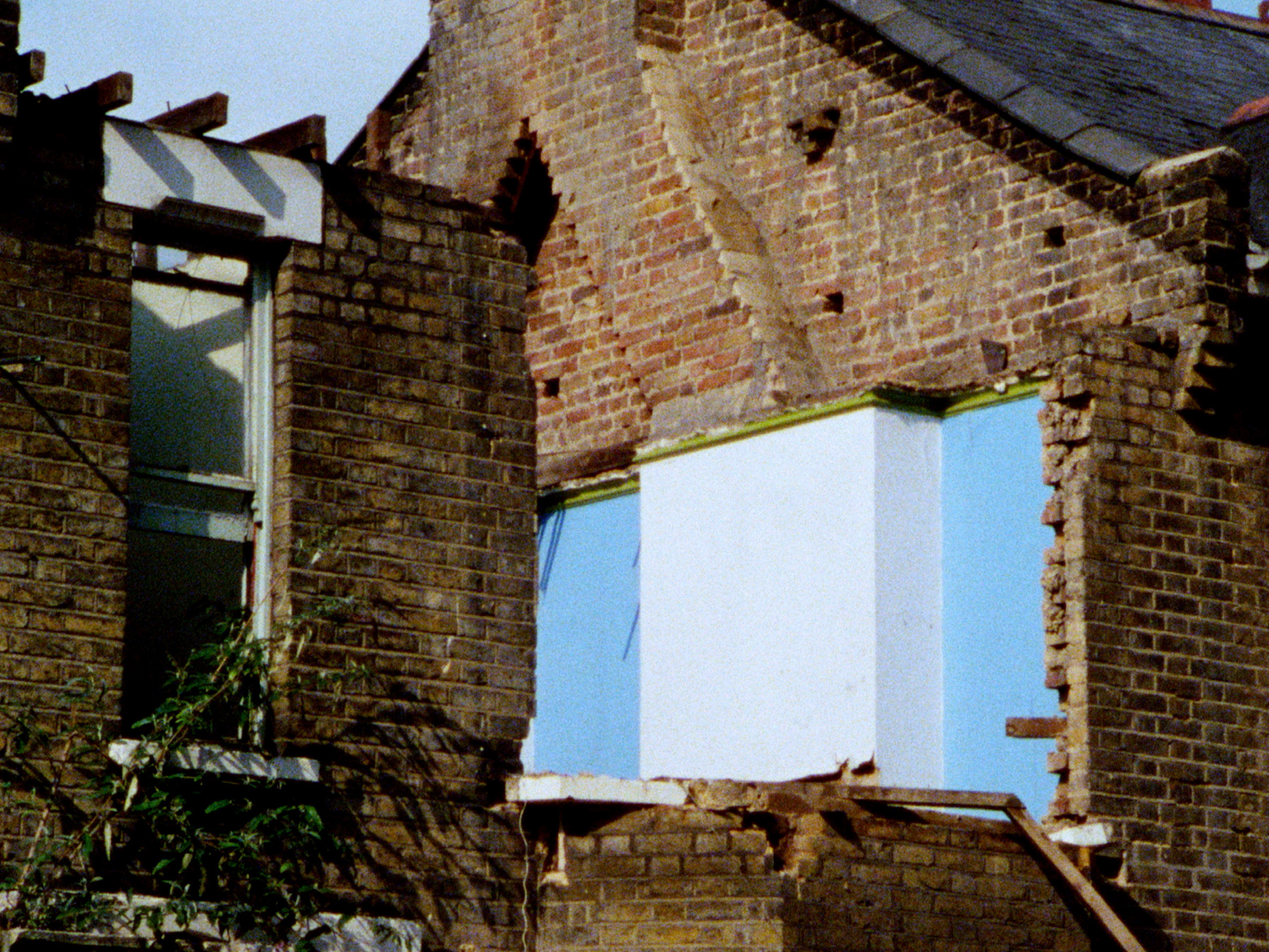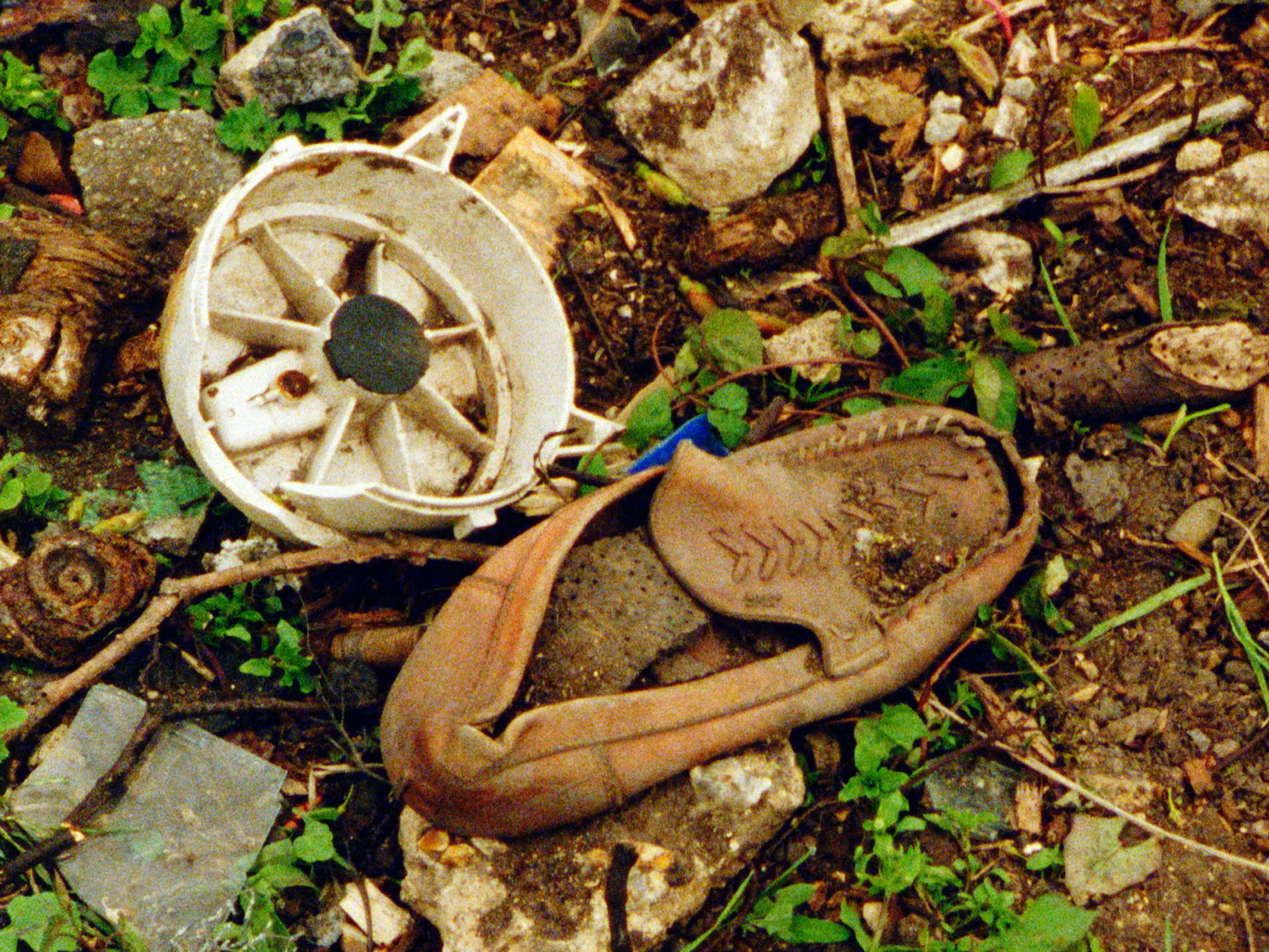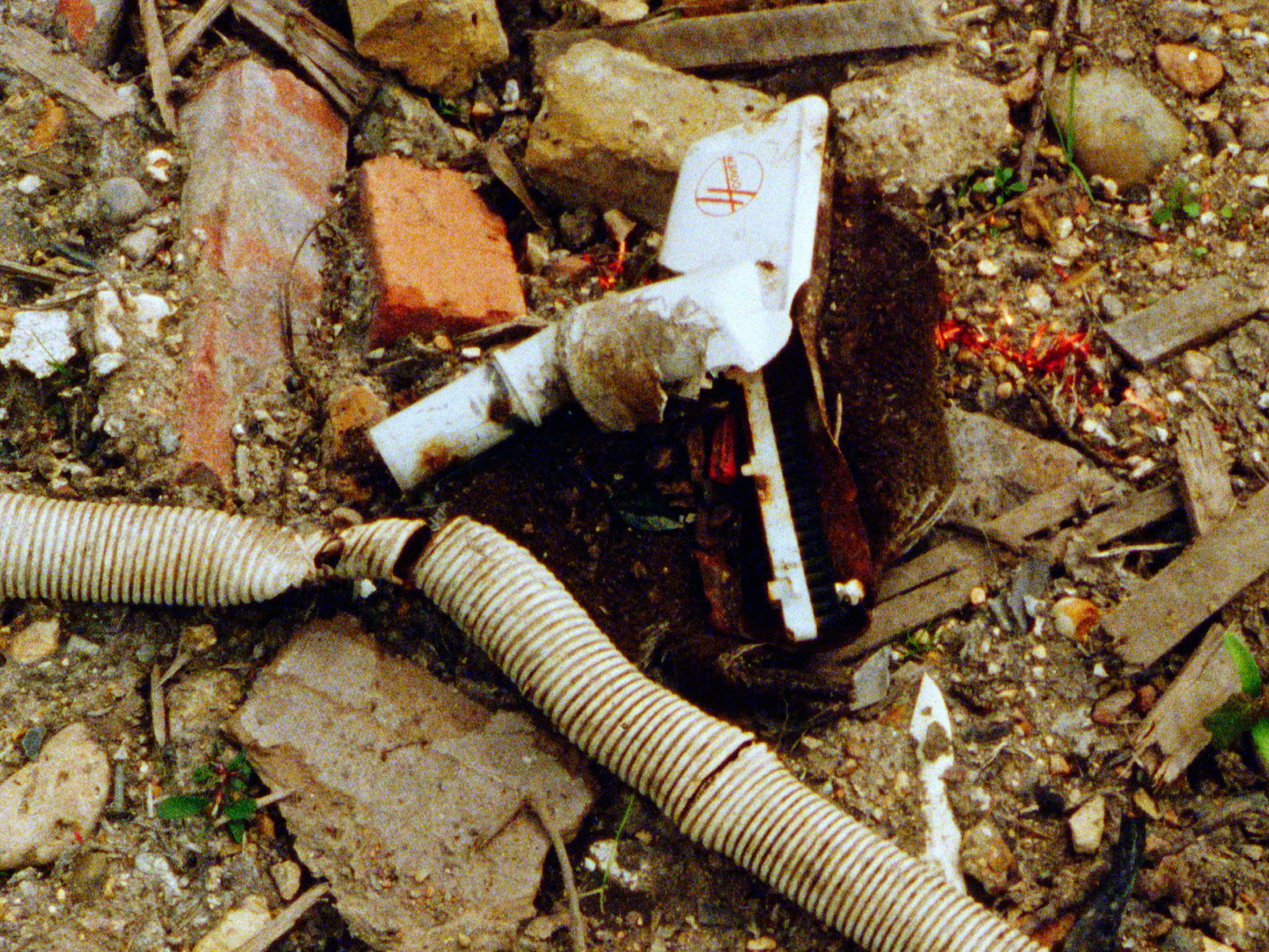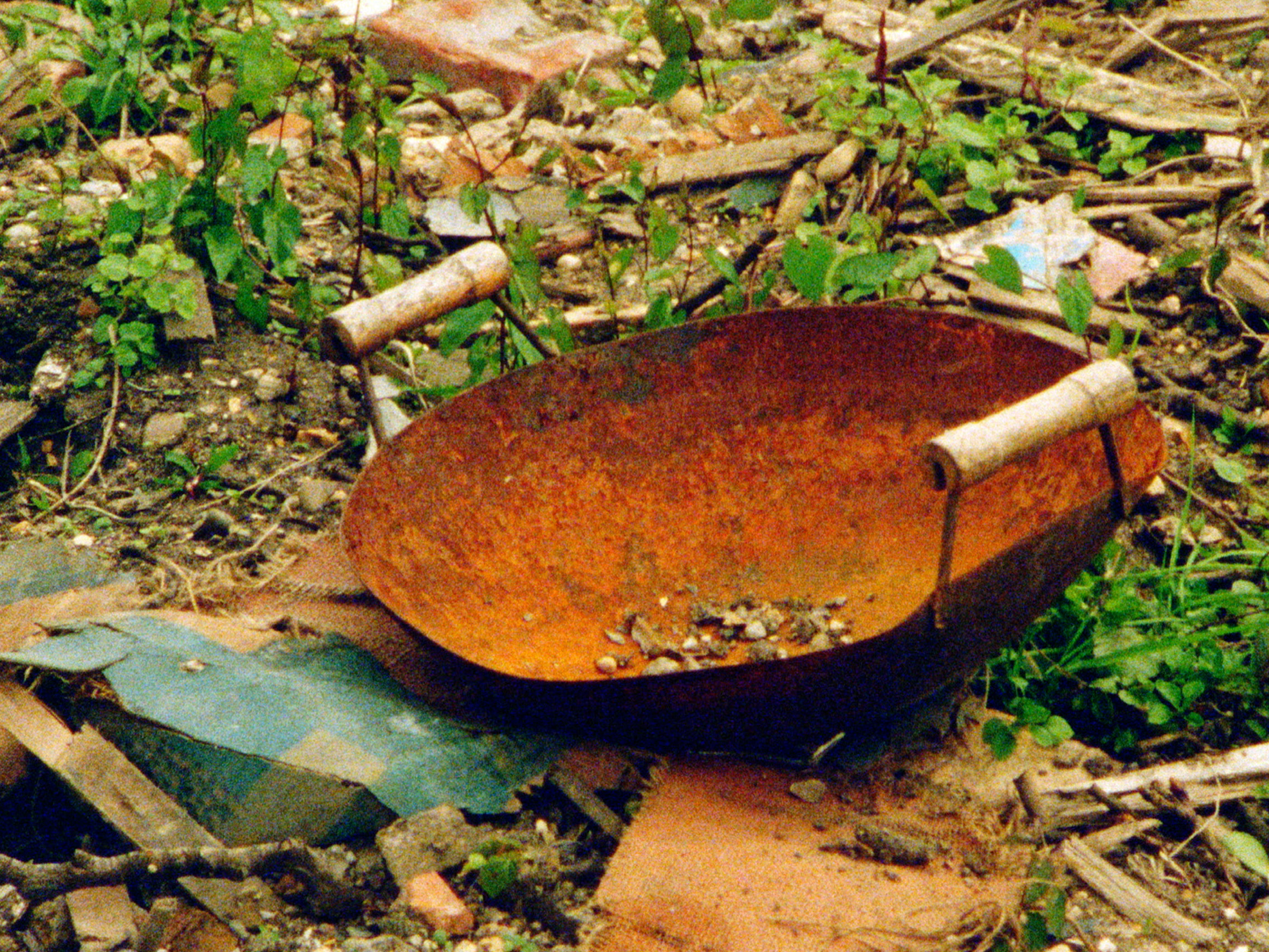Blight was made in collaboration with the composer Jocelyn Pook. It revolves around the building of the M11 Link Road in East London, which provoked a long and bitter campaign by local residents to protect their homes from demolition. The images in the film record some of the changes which occurred in the area over a two-year period, from the demolition of houses through to the start of motorway building work. The soundtrack incorporates natural sounds associated with these events together with speech fragments taken from recorded conversations with local people.
Although the film is entirely constructed from records of real events Blight is not a straightforward documentary. Addressing themes of memory and loss, the film constructs stories from unconnected fragments of sound and image, bringing disparate reminiscences and contemporary events together. Like much of my other work, Blight exploits the ambiguities of its material to produce new meanings and metaphors, fictionalizing reality through framing and editing strategies. Scenes are frequently shown in close-up, creating a sense of mystery and anticipation through the withholding of visual information. The emotive power of Jocelyn Pook’s music is used in the film to overtly aid this invention, investing mundane images with dramatic significance. A specific ‘real’ context for the depicted events only becomes apparent at the end of the film. What is presented is simultaneously fact and fiction. John Smith, 1996
“A stunning montage depicts the destruction of a London street to make way for new roads. The rhythmic, emotive soundtrack is partly musical and partly a collage of the residents’ voices. Shots and sounds echo and cross-link in the film’s 14 minutes to reinvent a radical documentary tradition.” A.L. Rees, A History of Experimental Film and Video, 1999
“Blight evinces a tremendous formal precision while simultaneously foregrounding an urge to embalm time, as Smith acts as a witness to the difficulty of the present, creating an archive of a vanishing community. To the residents’ protest, Smith adds a protest against forgetting. Even if the houses could not be saved, they will at least be spared from oblivion. The film draws out a crucial feature of the experimental atlas of East London that many of Smith’s films together comprise: within the context of a country riven by class hatred and brutally dragged into neoliberalism by Margaret Thatcher, a prime minister who initiated a programme of social cleansing that continues into the present, the artist’s devotion to the textures of ordinary life is a counter-hegemonic gesture of contestation.” Erika Balsom
“John Smith’s beautiful elegy for East London homes destroyed to build the M11 Link Road, Blight, 1994-96, interweaves voices of the evicted and demolition footage to a dramatic score by Jocelyn Pook. Masterful editing introduces warning flash frames of red, green and blue to the thud of bricks, which mount to streaks of colour as figurative details of domestic life are subsumed by mechanistic force. Smith lets graffiti on the remnant homes narrate the protest, leaving us haunted by one resident’s voice: ‘It has a living energy of itself. That house has a spirit’. Blight reverberates now as a plangent plea to stop destroying our planet home and to design more earth-centred dialogue between architecture, infrastructure and community, beyond our speed and growth dependency.” Cherry Smith, exhibition brochure for Hidden in Plain Site, Stephen Lawrence Gallery, 2022
14th Hamburg International Short Film Festival, Germany, 1998
Best International Short Film
42nd Cork International Film Festival, Ireland, 1997
Best European Short Film
40th Leipzig International Documentary and Animation Festival, Germany. 1997
Golden Dove (best short documentary)
33rd Chicago International Film Festival, USA, 1997
Gold Plaque (best experimental film)
16th Uppsala International Short Film Festival, Sweden.
Film Jackdaw (best experimental film)
43rd Oberhausen International Short Film Festival, Germany, 1997
Prix Regional and Youth Film Prize
3rd International Biennale of Film and Architecture, Graz, Austria, 1997
Special Critics Award
2nd Bangkok Experimental Film Festival, Thailand, 1999
Audience Prize
